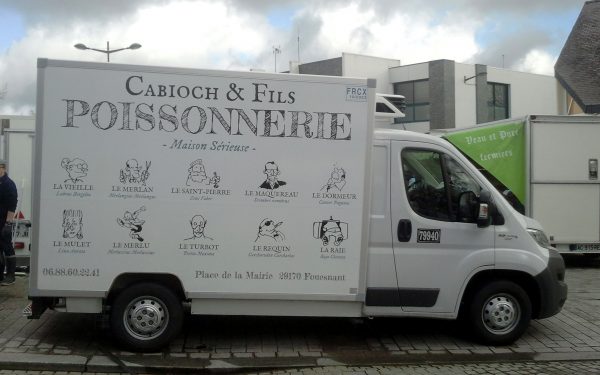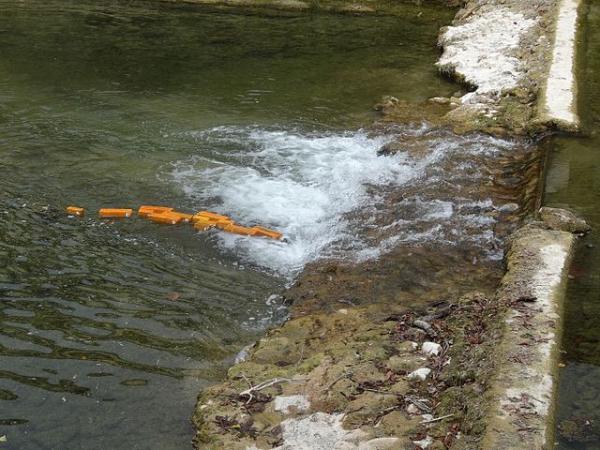When it comes to advertising, your correspondent shares George Orwell’s opinion as expressed in 1936 in “Keep the Aspidistra Flying“, i.e.:
The public are swine; advertising is the rattling of a stick inside a swill-bucket
However, I’ll make an exception for a local fishmonger’s van seen on Good Friday in Fouesnant market in Brittany and depicted below.

Billing themselves as a hard-working/responsible/serious company (Maison sérieuse), Poissonnerie Cabioch & Fils’ signwriter clearly has a humorous streak when it comes to advertising her/his client’s common items of trade.
For those not well versed in French, the bounties of the sea shown on the side of the van are listed below with their equivalents in English. Some also have slang meanings in French. Each link in the list leads to the relevant Wikipedia page in the respective language for the species concerned.
- Vieille – ballan wrasse
- Merlan – whiting
- Saint-Pierre – John Dory
- Maquereau – mackerel
- Dormeur – edible crab
- Mulet – mullet
- Merlu – hake
- Turbot – turbot
- Requin – shark
- Raie – skate
Talking of fishy things, it’s very nearly April Fools’ Day, or for the French “Poisson d’avril“. For children, “Poisson d’avril” consists of sticking a paper fish on the backs of people they wish to make fun of.
The earliest known occurrence of “Poisson d’avril” in French is found in the “ Doctrinal du temps présent” by the 15th century French poet and priest Pierre Michault, dating from 1466. However, its use to describe a traditional trick played on 1st April is only confirmed in the 17th century, when its earliest known occurrence is found in “La Vie de Charles V, duc de Lorraine” by historian Jean de Labrune published in 1691. It is first recorded in the dictionary of the Académie française, the guardians of the French language, in 1718.

Finally fish – in this case rotten fish – also come into play in French if one wants to call someone every name under the sun; the equivalent French expression is “engueuler comme du poisson pourri“.